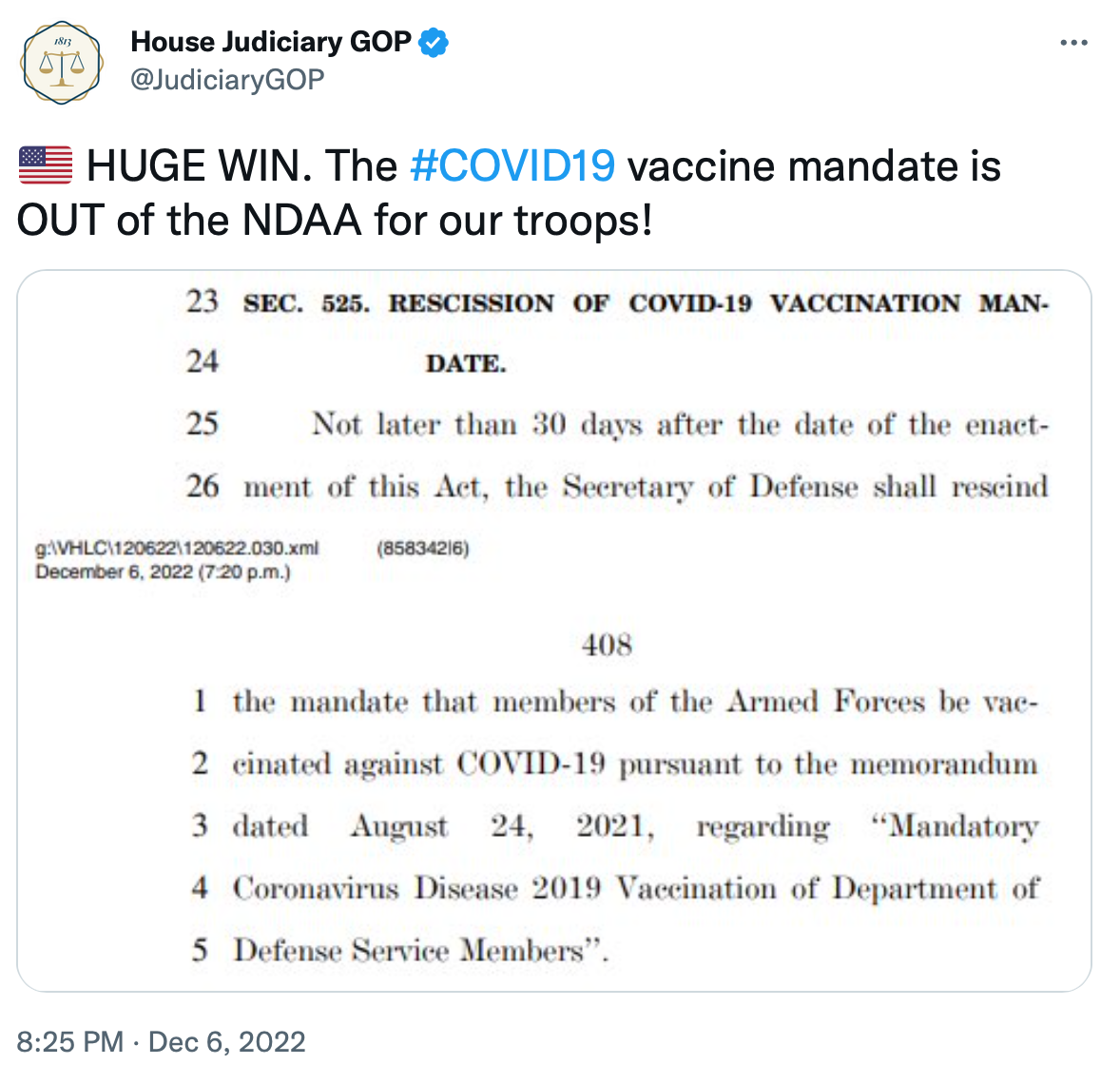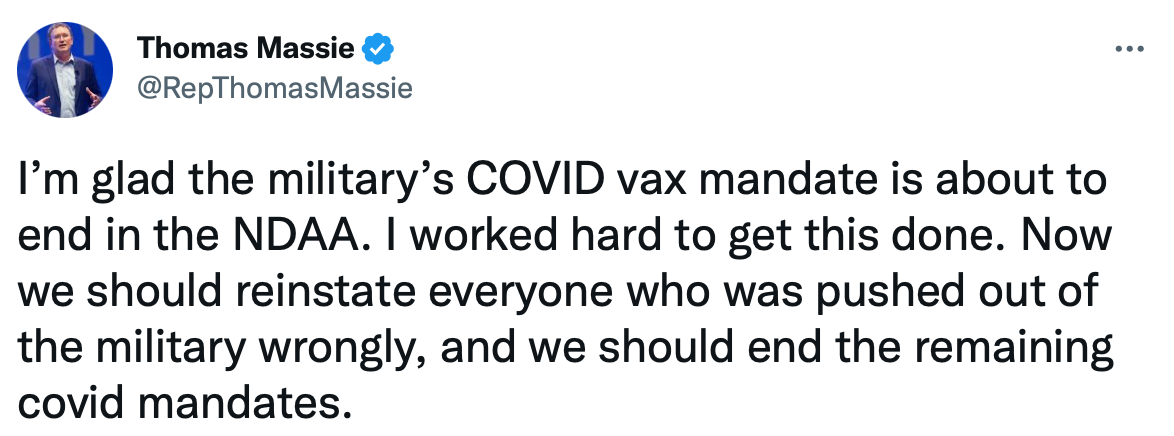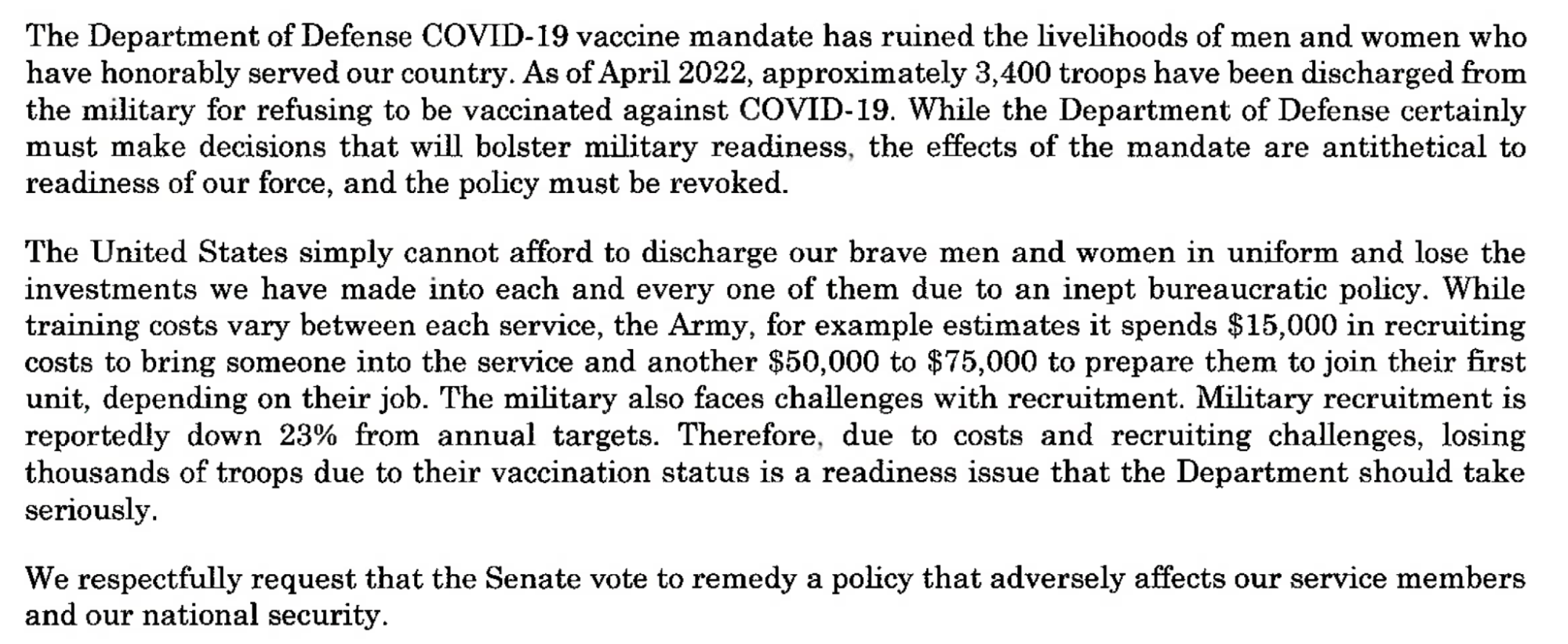House Republicans and Democrats have joined to approve a version of the National Defense Authorization Act (NDAA) that will remove the COVID vaccine mandate for Fiscal Year 2023.
While it is a significant step toward protecting the rights of US soldiers, sailors and airmen, the bill must clear several more hurdles in Congress. More is needed to ensure that it is passed and signed into law.

Lt. Col. Davis Younts, a Judge Advocate General (JAG) for the U.S. Air Force, has been working for nearly two years in his personal capacity to defend service members who face discharge from the military over the vaccine mandate.
“We need more pressure on Congress to make sure this happens as well as a final push for real protection for military members,” Younts told The Sentinel. “Unless Congress goes farther than the compromise language the current bill will not protect thousands of military members.”
Younts continued, “The DoD [Department of Defense] could still kick many military members out for failing to follow a ‘lawful order’ when the mandate was in place. For those that are permitted to stay, they have lost the opportunity to promote and will still have negative paperwork in their file.”

Rep. Thomas Massie (R-KY) has been at the forefront of the effort to end the vaccine mandate and sponsored bill H.R. 3860 to end the mandate for the armed forces.
“[The NDAA bill] doesn’t go far enough, but let’s take what we can get,” Massie said. “We should be reinstating everybody that was pushed out wrongly.”
Last week, several GOP senators sent a letter to Senate Republican Leader Mitch McConnell demanding that an amendment be added to the NDAA to remove the mandate and that service members be reinstated with back pay.

“While the Department of Defense certainly must make decisions that will bolster military readiness, the effects of the mandate are antithetical to the readiness of our force, and the policy must be revoked,” the letter said.
“The United States simply cannot afford to discharge our brave men and women in uniform and lose the investments we have made in each and every one of them due to an inept bureaucratic policy.”
As the measure currently stands, it requires that the vaccine mandate be rescinded within thirty days of when the NDAA becomes law.
National Security Council spokesman John Kirby said that President Biden has not said he will veto the bill, but that Defense Secretary Lloyd Austin, who imposed the mandate in August 2021, “... has been very clear that he opposes the repeal of the vaccine policy, and the president actually concurs with the secretary of defense.”
“We lost a million people to this virus,” Austin said on Saturday. “A million people died in the United States of America. We lost hundreds in DOD. So this mandate has kept people healthy. …I support continued vaccination of the troops.”
"Forcing all servicemen and women to accept an experimental treatment, ignoring and outright steamrolling legitimate medical and religious accommodation requests, is wrong," said Younts.
"You can't claim to care about 'readiness' and 'keeping people healthy' while simultaneously discharging over 10% of the military," Younts said.



